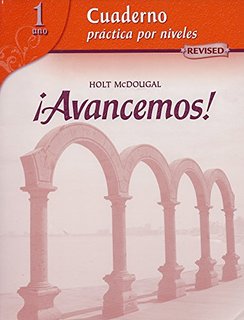
All Solutions
Page 324: Gramatica A
*(…y él fue con **ella**.)*
The pronoun that fits here is “her” (**ella**). The other pronoun does not make sense with the rest of the sentence.
*(… Los chicos hablaron con **nosotros**…)*
The pronoun that fits here is “us” (**nosotros**) because in the first sentence we have the pronoun “we” (nosotros).
*(…muy bueno para **mi.**)*
The pronoun that fits here is “me” (**mi**) because in the first sentence we have the pronoun “*my* week ” (*Mi* semana).
*(Fui **contigo** al cine…)*
The pronoun that fits here is “me” (**mí**). The other pronoun does not make much sense here.
*(…que tú fiste **con nosotros** al cine.)*
The pronoun that fits here is “with us” (**con nosotros**). The other pronoun does not make much sense here.
We will translate the sentences because context is crucial in these types of exercises.
*(…Fue muy interesante para **ella**.)*
The pronoun we needed here was “her” (**ella**) because we have “Patricia” in the first sentence.
*(…porque me gusta estar con **él**.)*
*
The pronoun we needed here was “him” (**él**) because of “Matías,” who is a guy (he).
*(…porque me gusta estar con **ella**.)*
The pronoun we needed here was “her” (**ella**) because of “Juana,” who is a girl (she).
*(A **mí** también me gustó…)*
We used the pronoun “I” (**mí**) because of “*me* gustó,” which implies the first-person singular.
*(…Nunca habla de **eso**.)*
Here, we had to use the pronoun “that” (**eso**), because it answers “*what* Patricia likes.”
*Do you like to go shopping?*
– Sí, **a mí me** gusta ir de compras.
*(Yes, I like to go shopping.)*
*Do you go to the movies with your friends on the weekend?*
– Sí, **yo** voy al cine con **mis** amigos el fin de semana.
*(Yes, I go to the movies with my friends on the weekend.)*
Do your parents go with you to a shopping mall?
– No, **mis** padres no van **conmigo** al centro comercial.
*(No, my parents do not go with me to a shopping mall.)*

